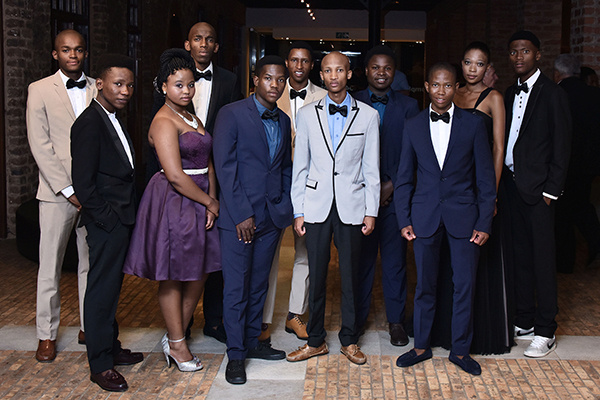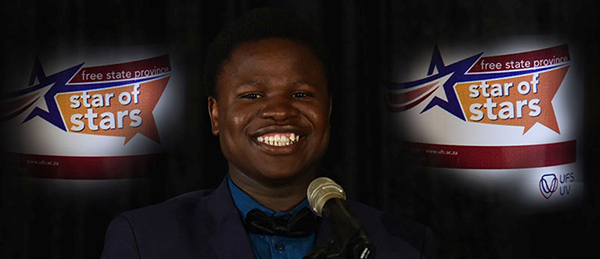
The 11 Kovsie Star of Stars finalists.
Photo: Charl Devenish

"Doctor" Tshepo Thajane, the 2017 Kovsie Star of Stars.
Photo: Charl Devenish
Starting in 2016, the UFS Marketing department embarked on a project designed to help learners from less fortunate backgrounds to discover their potential. This competition, dubbed Kovsies Star of Stars, recognises excellence in some of the most disadvantaged schools in the Free State. C-Squared Group, a black-owned and -managed agency, is partnering with the UFS in this endeavour. Amongst many other prizes on offer, the winner is awarded a full bursary to study at the UFS.
For the first year, two of the five Free State districts were identified, namely Xhariep and Motheo. Grade 11 and Grade 12 learners were invited to participate in 2016, the winner being announced at a gala event on the Bloemfontein Campus early in 2017, with Success Lekabe as host for the evening.
Nomonde Mbadi, Director of UFS Marketing, says of the contestants, “All 11 Star of Stars finalists had one thing to say that gave the judges goose bumps, and that was: ‘We want to give back to our community.’ This is truly commendable.”
"Doctor" Tshepo Thajane, from Lefikeng Secondary School in Botshabelo, was selected as the winner of the inaugural Kovsies Star of Stars competition. He is pursuing a degree in Actuarial Sciences, and will be a Karee resident. He says, “I loved UFS before I even came here, because of the respect I was shown. And I really didn’t think I would win; it just came as a surprise to me.”
Lebohang Lesenyeho, from Kgauho Secondary School (Botshabelo), had a special word for the organisers. “I would be very honoured if you could include a message to them. We really thank them for this opportunity.”
It is hoped the competition will garner the support of financial sponsors and be expanded to include learners from Grade 9, 10, 11, and 12 across all five districts in the Free State province.